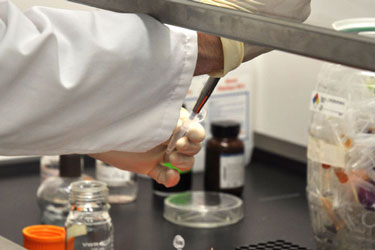Public Health
Master of Public Health (M.P.H.)
Doctor of Philosophy (Ph.D.)
USask’s Public Health graduate programs prepare students for leadership and research in real-world public health challenges through interdisciplinary training, access to world-class research, and advanced study of public health issues locally and globally.

Vaccinology and Immunotherapeutics
Master of Science (M.Sc.)
Doctor of Philosophy (Ph.D.)
USask’s Vaccinology and Immunotherapeutics M.Sc. and Ph.D. programs combines interdisciplinary and multidisciplinary training in vaccine science and policy, combining cutting-edge research with practical experience in scientific development and societal issues related to immunization.

Biostatistics
Master of Science (M.Sc.)
Doctor of Philosophy (Ph.D.)
Biostatistics graduate programs focus on developing and applying statistical techniques to medical, biological, and agricultural data, with real-world applications in public health, clinical and veterinary medicine, and environmental health.

Epidemiology
Doctor of Philosophy (Ph.D.)
USask’s Ph.D. in Epidemiology is designed to produce highly qualified epidemiologists capable of investigating complex health issues through advanced quantitative research, with specialization options including infectious disease, environmental, occupational, and chronic disease epidemiology.
Substance Use Health and Wellbeing
Graduate Certificate (G.Cert.)
USask’s Graduate Certificate in Substance Use Health and Wellbeing equips professionals with evidence-based knowledge to address substance-related health issues and drive meaningful change in policy, practice, and community wellbeing.

Questions?
Information about admission requirements and deadlines, tuition, applying and more is available at the links included with each program listed above.
General enquiries
sph.admin@usask.ca
MPH program
sph.admissions@usask.ca
Thesis-based programs
thesis.admissions@usask.ca

